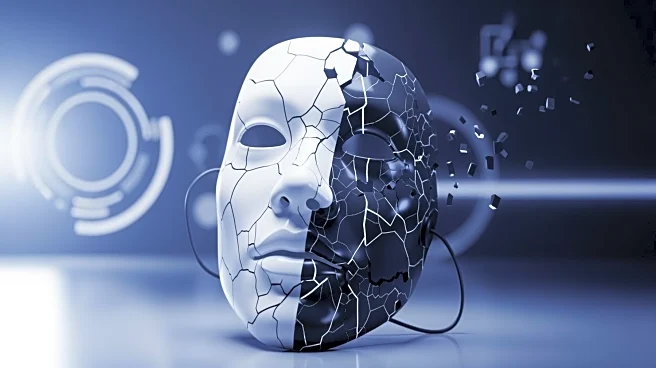What's Happening?
The emergence of Black AI influencers is raising concerns about digital blackface and the exploitation of Black culture. These hyperrealistic avatars, often seen on platforms like TikTok and Instagram, mimic Black individuals and engage in activities
such as shopping, socializing, and participating in viral trends. Despite their lifelike appearance, these AI figures are not real people, but rather digital constructs that perpetuate racial stereotypes. The phenomenon is part of a broader trend where Black expression is appropriated and monetized, reflecting a longstanding issue in American culture. Critics argue that this digital representation dehumanizes Black individuals and exploits their cultural identity for profit.
Why It's Important?
The proliferation of Black AI influencers highlights significant ethical and cultural issues. It underscores the ongoing exploitation of Black culture in digital spaces, where racial stereotypes are commodified. This trend can have detrimental effects on societal perceptions of race and identity, reinforcing harmful stereotypes and contributing to the dehumanization of Black individuals. Moreover, it raises questions about the role of technology in perpetuating racial biases and the responsibilities of tech companies in addressing these issues. As AI continues to evolve, the need for ethical guidelines and cultural sensitivity in digital content creation becomes increasingly critical.
What's Next?
The rise of AI influencers may prompt discussions among tech companies, cultural critics, and policymakers about the ethical implications of digital representation. There could be calls for stricter regulations and guidelines to prevent the exploitation of racial identities in digital media. Additionally, advocacy groups may push for greater accountability from platforms hosting these AI figures, urging them to address the cultural impact of their content. As awareness grows, there may be increased efforts to educate the public about the nuances of digital blackface and the importance of preserving cultural integrity in the digital age.
Beyond the Headlines
The issue of digital blackface extends beyond immediate cultural concerns, touching on broader themes of identity, representation, and technology's role in shaping societal norms. It challenges the notion of authenticity in digital spaces and raises questions about the future of human interaction with AI. As technology blurs the lines between reality and digital constructs, society must grapple with the implications for cultural preservation and the ethical use of AI in media.















